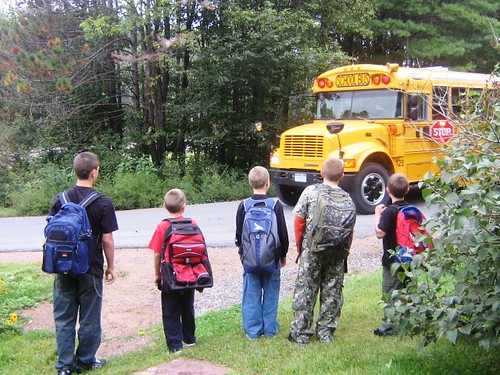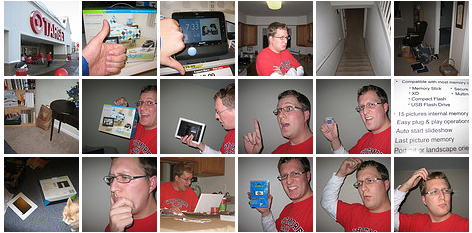I have a decision to make. I don't want to make it. I already know what I'll end up doing in the end. Think you can figure it out?
The situation
My new school has two laptop carts per floor. That works out to two classroom sets of laptops for every 20-22 teachers or so. They're brand new and not many teachers realize that they're working perfectly fine (98% of the time at least).
There's no check-out or check-in system. When I wanted them, I went to the teacher's workroom and rolled them on down to my room. I had no way of telling if they would actually be available until I opened the door to the teacher's workroom. I have no way of telling when other teachers would like to use them.
The options
1. Do nothing.
- Pros: I could (in theory) just keep the laptop cart in my room unless people ask for it. I'd definitely be able to use the laptops multiple times during the week. With my seeming inability to accurately plan how long things will take, I wouldn't have to worry about not getting to that online activity on time.
- Cons: (1) I'd be monopolizing 50% of the available computers to regular classroom teachers. (2) I'd have no idea how long other teachers would be using the laptops when they did take them (if they ever found out where I was stashing them, of course!).
2. Do something (i.e. set up a shared Google Calendar or the like for teachers to sign out the laptops)
- Pros: (1) I'd know when and for how long other teachers would be using the laptops. (2) There would be the opportunity for more equitable use of the laptop carts for all teachers.
- Cons: I'd lose my potential monopoly of the carts, and would more thank likely have to reduce the number of activities in my classroom that would require the use of laptops. Boo.
 The laptop cart: currently hiding in my room
The laptop cart: currently hiding in my room
The real problem
We don't have enough laptops.
I wrote about a very similar topic in March while I was at Whitmore Lake in Michigan. Back then we had four laptop carts and a media center lab available for use between 22-25 teachers. Here I'm down to two laptop carts and essentially zero dedicated computer labs available for use for the same number of teachers.
I sometimes chuckle to myself when my vice-principal talks about how much technology is available to students this year.
So, take a guess:
What am I going to do? Something, or nothing? 😉


 So, how do you connect students to technical rock information? Why, through telling the saga of Mr. Pebbles², of course! Mr. Pebbles is a pebble (surprise!) who goes through a crazy journey of being melted, reformed, and then dragged through the rest of the rock cycle. I made a little (poorly drawn) comic strip³ depicting Mr. Pebbles' travel (and travail), which just happened to touch upon the required content. I worried it would be to "kiddie" for my high school sophomores, but they enjoyed it. They enjoyed it enough that I had them create their own comics later on in the unit.
So, how do you connect students to technical rock information? Why, through telling the saga of Mr. Pebbles², of course! Mr. Pebbles is a pebble (surprise!) who goes through a crazy journey of being melted, reformed, and then dragged through the rest of the rock cycle. I made a little (poorly drawn) comic strip³ depicting Mr. Pebbles' travel (and travail), which just happened to touch upon the required content. I worried it would be to "kiddie" for my high school sophomores, but they enjoyed it. They enjoyed it enough that I had them create their own comics later on in the unit.















